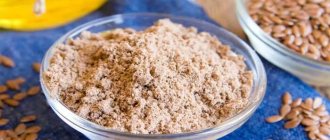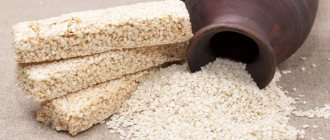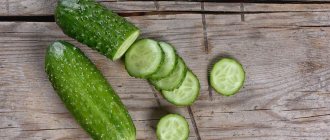Gardening » Citrus » Lemon
0
980
Article rating
Kira Stoletova
Citrus fruits are a huge number of hybrid plants that share similar characteristics. The most famous is lemon. The fruit is rich in vitamins. The calorie content of lemon is low, so people watching their weight add it to their diet.
Benefits and nutritional value of lemon
Vitamin content
It's no secret that lemon, like other fruits, contains many useful substances and vitamins. Thanks to its vitamins, lemon effectively fought viruses and helped the body overcome colds (flu, sore throat) in the shortest possible time. Lemon contains:
- A;
- B1;
- B;
- B2;
In addition to all of the above, lemon contains iron, phosphorus, manganese, magnesium and other minerals. But the most important factor that determines the most effective benefits of the fruit is citric acid. It cleanses the human body of toxins, improves digestion, increases appetite, and blood circulation.
But these substances are not contained in the pulp, but in the peel.
Beneficial features
The most valuable property of the product is its ability to strengthen the body’s immunity and defenses. This is what makes the fruit popular among adults and children.
Lemon also has many other beneficial properties:
- normalizes digestion, increases the acidity of gastric juice during anacid gastritis;
- improves metabolic processes and promotes rapid weight loss;
- helps destroy bacteria in stomach ulcers;
- alleviates the patient's condition with sore throat, tonsillitis, laryngitis;
- stimulates tissue regeneration in case of extensive burns;
- relieves acute symptoms of skin ailments, such as eczema, dermatitis, psoriasis;
- prevents the deposition of harmful cholesterol on the walls of blood vessels and strengthens them;
- reduces the risk of stroke, heart attack;
- prevents internal bleeding;
- improves blood composition and increases platelet count;
- normalizes blood pressure;
- promotes the removal of toxins and waste from the body;
- prevents chronic constipation, bloating, spasms of intestinal smooth muscles;
- has anti-inflammatory, antiseptic, antibacterial and mild diuretic effects;
- stimulates the functioning of the central nervous system, improves memory and attention;
- strengthens bones and teeth.
For men, drinking lemons is an effective prevention of disorders of the reproductive system and prostate pathologies. The fruit increases endurance and physical strength. The product is useful for women because it facilitates menstruation and reduces pain, prevents heavy bleeding, normalizes hormonal levels, and eliminates insomnia and anxiety.
For children, the benefits of the fruit are also obvious, since fragile bodies are often susceptible to colds and other pathologies of the respiratory system. Regular consumption of small portions of lemon will help improve the child's condition.
How does lemon affect human health?
Benefit
- Improving immunity. Lemon improves overall health. Tea with lemon has long become commonplace; it is currently considered the best folk remedy that helps fight colds. Citrus can be consumed for sore throats; consuming lemon regularly will help not only fight viruses, but also protect the body from subsequent illness.
- Reduces temperature. It is recommended to drink lemon and tea not only to heal, but also to lower the temperature. It quickly relieves fever.
- Promotes restful sleep. Mixing lemon and honey will provide you with a sound sleep throughout the night.
- For brain activity. Lemon has a good effect on brain activity and performance. Thanks to consumption, memory can improve dramatically.
- Scientists have proven that lemon reduces the risk of cancer. Reduces the occurrence of cancer in both women and men.
- In winter, the body is depleted from a lack of vitamins, because in the cold season it is not so easy to find healthy and tasty fruits. In this case, lemon helps to cope with vitamin deficiency.
- Lemon juice cleanses the liver after prolonged treatment with drugs, with hepatitis, after smoking and long-term consumption of alcohol. It also helps remove kidney stones.
Potential harm and contraindications
Even though lemon has a lot of positive qualities, it, like other fruits, has contraindications that every person should study before consuming.

Lemon should not be consumed by those who have problems with the gastrointestinal tract, or more precisely:
- Gastritis;
- duodenal ulcer;
- increased stomach acidity;
- constipation, heartburn.
- Excessive use of lemon juice, which is used as a mouth rinse, contributes to the destruction of tooth enamel.
- It is forbidden to drink undiluted lemon juice. It has a very aggressive environment that can ruin even a healthy gastrointestinal tract.
- Do not rinse your mouth with undiluted lemon juice, otherwise it may cause a burn to the mucous membrane.
- Lemon should not be given to children under 2 years of age; their mucous membranes are still very tender.
Harm to the body
Eating lemon if you have an allergy or eating a low-quality product can be harmful.
Contraindications to the use of the fruit are as follows:
- stomach ulcer or any inflammatory process in the digestive tract;
- gastritis;
- pancreatitis;
- kidney diseases;
- individual intolerance.
Important! Drinking undiluted lemon juice is not recommended, as the drink is highly acidic and can harm the stomach. If you have problems with the digestive tract, it is also not recommended to drink water with lemon on an empty stomach.
Contraindications for consuming frozen lemon are the same as for fresh fruit. The zest can have a negative effect on the body only if it is spoiled.

© Christian Jung — stock.adobe.com
Features of application
In folk medicine
Lemon has many uses. People have found use for lemon in folk medicine, for cosmetic purposes, and in everyday life. Citrus can also cure many diseases: rheumatism, worms, malaria, etc. But greater preference was given to the treatment of bronchitis:
- You should remove the peel from the fruit and chew it.
- Then you need to take a kilogram (or less) of lemon, grind it together with the pulp and pour it with honey. This remedy will help improve the functioning of the heart.
In cosmetology
This product contains a whole treasure trove of essential substances that will preserve youth and beauty. The properties of lemon have a good effect on the condition of facial skin. Due to the fact that it contains lemon juice, it helps the skin get a whitening effect. With its help you can remove spots, blackheads, acne and other inflammations. Citrus also tightens and cleanses pores and dries out the skin.

In cooking and diet
The lemon diet is in great demand among those losing weight. Due to the fact that there are no restrictions in the lemon diet, with a little effort, lemon will help you lose five to six kilograms. Acid improves digestion, increases the production of saliva and gastric juice, and this helps to better absorb those substances that could not be absorbed before. The lemon diet will not make you give up your usual food. It should be remembered that the diet should not contain the following foods that reduce the effectiveness of the diet:
- vegetables fruits;
- meat, pate;
- rice, bread.
Many housewives also liked lemon in cooking. Due to its unusual taste, it will add piquancy and originality to the dish. Lemon juice is squeezed out and used for marinade, sauce, baking or dessert. The pulp of the fruit is added to confectionery dishes and desserts in dried and fresh form.
But housewives with ingenuity have found use for citrus in everyday life. Lemon juice will help remove odors from the washing machine and is a good cleaner for microwaves and ovens.
Energy value and calorie content
The energy value of lemon is an important indicator when determining the amount of product in a person’s diet per day.
The amount of product is associated with physical activity, in which the energy released during the digestion of food can be used. The nutritional value of lemon is determined by the peculiarity of its use and combination with different products.
Pure citric acid has no caloric content or energy value. Lemon juice contains proteins in an amount (in grams) of 0.9, carbohydrates - 3, fats - 0.1. The calorie content of the product is 16 kcal. The caloric content of water with lemon is low - 11.6 kilocalories, in which proteins - 0.1 g, fats - 0 g, carbohydrates - 2.9 g.
The number of calories in fresh lemon is 34.46 kcal per 100 g of product, about 150 g in one fruit. The nutritional value of lemon reflects the BJU index, which is 10%: 3%: 87%. Proteins in 100 g of citrus fruit are 1.27 g, fats are 0.24 g, carbohydrates are 5.02 g.
Lemon slices without peel have a calorie content of 29.3 kcal, including proteins - 1 g, fat - 0.3 g, carbohydrates - 9.3 g. Lemon peel releases energy in the amount of 47 kcal per 100 grams of zest, it contains proteins - 1.5 g, fats - 0.3 g, carbohydrates - 5.4 g.
The calorie content of lemon with sugar (the energy value of a ripe lemon) is up to 169 kcal. The amount of protein is 0.6 g, fat - 0.1 g, carbohydrates - 38.7 g. Calorie content of dried lemons has an energy value of 286 kcal per 100 g, among which proteins - 4.9 g, fats - 0.4 g, carbohydrates - 74 g. Dried fruits include 254 kcal, of which proteins - 1.8 g, fat - 0 g, carbohydrates - 71 g.
The glycemic index is an indicator of the rate at which the human body absorbs carbohydrates in food and increases blood sugar levels. A high index indicates the rapid use of energy obtained from food, while a low index indicates a high fiber content, then the body burns energy slowly. The glycemic index of lemons is 25 units - this is not a high figure.
How to choose a lemon?
Perhaps the only criterion worth focusing on is the peel. Thanks to it, we can understand how fresh the fruit is.
- The peel should be bright yellow, which means the fruit is ripe. An unripe fruit has a matte coating on the skin, while one that is already ripe has a slight shine.
- Defects. If scratches, blackening, or black spots are visible on the surface, this indicates that the fruit was frozen. If you want to purchase a lemon without a bitter taste, avoid extraneous stains.
- The lemon scent should ooze through the skin. If it doesn't smell, it means a lot of chemicals were used to grow it.
- A fruit with a smooth, thin skin means it contains the highest amount of nutrients.
- If you squeeze a lemon and it does not spring back, this indicates that the fruit is overripe.
Note! Often, sellers resort to tricks by packing lemons in opaque packaging so that the buyer cannot understand whether the product is spoiled or not. This is done in order to quickly sell low-quality goods.
general characteristics
Content:
- general characteristics
- The nutritional value
- Beneficial features
- Health Benefits
- Benefits of Lemon Water
- Possible danger from consumption
- Use in cooking
- Lemons in cosmetology
- Other uses of lemon
Lemon is a hybrid plant of the citrus genus. It is believed that the ancestors of all citrus fruits known today are citron, pomelo and tangerine. All the rest are hybrids, resulting from mixing between these species and their “descendants”. Lemon, as scientists believe, is the “child” of citron and mandarin. It is believed that its homeland is the Deccan Plateau in central India. But when that very first lemon appeared on the planet, scientists cannot yet answer.
The first images of citrus fruits appeared on Roman mosaics, and the first surviving written descriptions of lemons date back to the beginning of the 10th century (found in Arabic treatises). In the Middle Ages in the Mediterranean countries, lemons were no longer something exotic. The fossilized remains of these fruits were found in the ruins of Pompeii. And at one time in Britain, this citrus was used to save the Royal Navy from scurvy.
The tropical and subtropical lands of Southeast Asia are considered native to plants of the rue family, to which lemon actually belongs. Lemon trees can grow up to 10m tall, but in general most plants are much smaller. Their open canopy is easily recognized by its thorny branches and white and purple fragrant flowers. Their leaves are shiny, rich green, elliptical in shape. The fruits are sour, juicy, oval-shaped with aromatic skin, usually yellow. The pulp is divided into slices.
Today, these fruits are grown commercially in Italy, Spain, Greece, Argentina, and the USA.
Storage methods
Even after choosing the right lemon, it will not be able to please you with its taste if the shelf life is violated:
- It is forbidden to put fruits in the freezer.
- Lemon should be stored on the lowest shelf.
- It is not recommended to leave cut or peeled lemons for more than a day.
- In order to remove the bitterness from the lemon, you need to put it in boiling water for a few seconds.
- Unripe fruit will not ripen in the refrigerator, so it must be stored at room temperatures.
This seemingly ordinary and familiar product has so many advantages. Lemon should be present in every home, because no one knows when you will need this unusual and healthy fruit, which will help you in various household chores and cooking.
What varieties of citrus are there?

There are several dozen varieties of lemon. There are tree lemons (Lisbon, Meyer, Pavlovsky) and bush lemons (Villa Franca, Panderosa). Some varieties are capable of surviving and bearing fruit only in tropical conditions, others are cultivated for latitudes with more severe climates.
Depending on their habitat, lemons differ in size (there are lemons weighing up to 500 grams), the thickness of the peel and zest, and taste (some are very sour, while others have a mild taste). Thus, different types of lemons may contain different ratios of chemicals . But their concentration is not fundamentally different.
Video
If you can’t decide which is healthier – a classic lemon or an exotic lime, then hurry up and watch this video. It will help put everything in its place and answer questions regarding the benefits and properties of these citrus fruits.
We also recommend reading about the calorie content of boiled corn. And if you often eat chicken breast, then be sure to find out how many calories it contains. Or maybe you will be interested in learning about the calorie content of walnuts? And be sure to read the article on the calorie content of honey.
So we learned about how many calories there are in lemon, and what properties this fruit has. We hope that this information will be useful to our readers. And if you have any questions, or maybe you want to share your information, write in the comments!
Lemon is an evergreen citrus tree from the Rutaceae family. The fruits of the plant themselves are also called lemon. They have a bright yellow color, a characteristic citrus smell and a very sour taste. Such fruits are especially popular during the cold season and when losing weight, and are familiar to absolutely every person from childhood.











